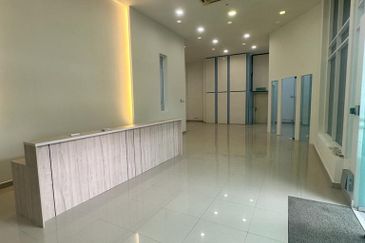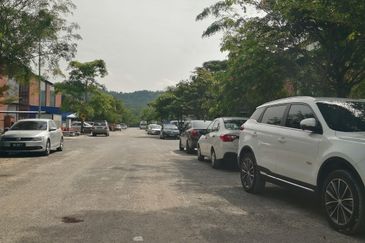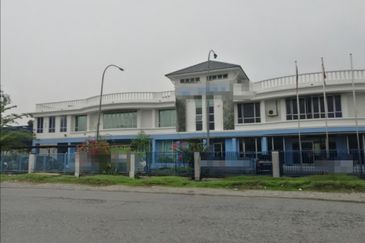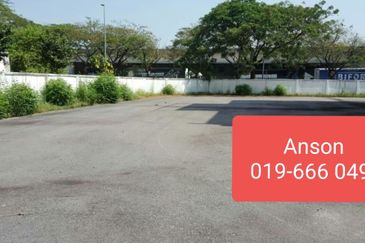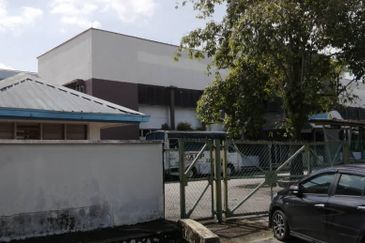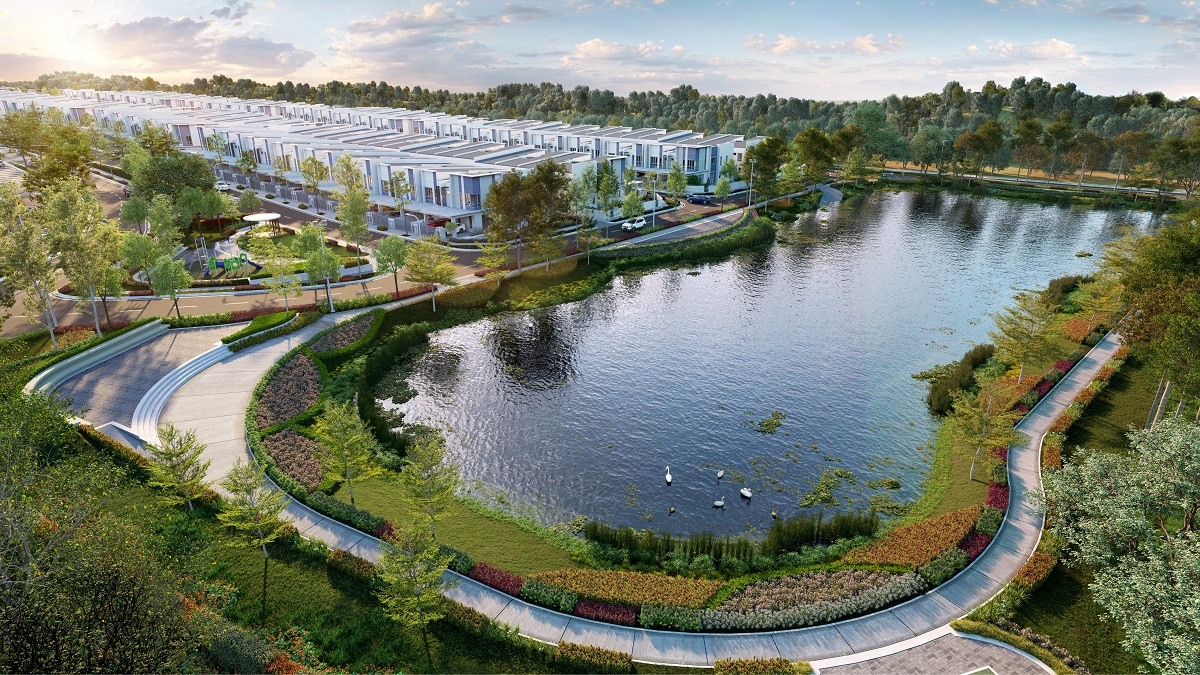 The recent proposed acquisition of a 50% stake in Menara Citibank, which is on Jalan Ampang, by Hap Seng Consolidated Bhd shows that domestic investors are leading investment activities in the Kuala Lumpur office market.
The recent proposed acquisition of a 50% stake in Menara Citibank, which is on Jalan Ampang, by Hap Seng Consolidated Bhd shows that domestic investors are leading investment activities in the Kuala Lumpur office market.
“There are selective buyers in the market who are prepared to seize the limited buying opportunities that good income-yielding properties offer. Domestic investors have dominated activities so far and will probably continue to do so for the next six to nine months,” says DTZ Debenham Tie Leung (Malaysia) Sdn Bhd executive director Brian Koh, whose office is in Menara Citibank.
Is investor interest returning to the office market? Yes, to a certain extent, says Koh. “Investors are beginning to realise that the market has stabilised and are now prepared to seriously come in early as the window of opportunity may only be open for a short period.”
However, the activities will be mainly domestic-led as foreign fund managers are still not finding the market offerings attractive compared with opportunities elsewhere, Koh adds.
The proposed acquisition of a 50% stake in Inverfin Sdn Bhd, the owner of Menara Citibank, for an estimated RM235.4 million is based on the net asset value of Inverfin as at Dec 31, 2008, with the agreed gross acquisition value of Menara Citibank at RM607.4 million.
With the building’s net lettable area of 733,634 sq ft, the purchase price works out to about RM828 psf. The building is on a freehold site of about 136,637 sq ft. Hap Seng’s 50% stake was owned by CapitaLand Ltd and Amsteel Corp Bhd, while the remaining equity interest is held by Menara Citi Holding Co Sdn Bhd.
Menara Citibank’s average gross rent rate was about RM5.97 psf per month while its occupancy rate was about 97%. The gross rental revenue based on the latest audited accounts of Inverfin for FY2008 ended Dec 31 was about RM48.76 million, or a gross yield of 8.03%. Operating profit was RM38.128 million, or a net yield of 6.28%.
An earlier bid to acquire Menara Citibank by IOI Corp Bhd fell through late last year.
Property consultants familiar with the market here says the estimated purchase price of RM828 psf by Hap Seng generally reflects the current market price.
According to Koh, the proposed price could indicate that capital value has declined but not as steeply as in other regional markets.
However, the initial yield of 6.28% is deemed too low by many investors looking to buy into the current market, says Koh.
KGV-Lambert Smith Hampton director Anthony Chua says the proposed deal is a reasonable one considering current market sentiment, and the reduction in prices.
The last significant prime office building transaction in the area was in 3Q2008 when Menara Standard Chartered along Jalan Sultan Ismail was acquired by ING Insurance Bhd at an estimated RM953 psf.
“The sale of these two buildings during bearish times like these is a good indication of a resilient market in times of uncertainty. Well-maintained office buildings with good occupancy in good locations will continue to attract investors,” says Chua, adding that interest among investors has certainly improved over the last few months.
Buyers, he says, are initiating sale negotiations although the owners have not put their buildings on the market. “The current office supply market in the city centre is tight in terms of supply, so owners are not pressured to sell. A number of investors are shopping around, hoping to get a bargain buy or at least a good buy, but there is definitely no fire sale here,” says Chua.
Among the significant office building transactions in the Golden Triangle in recent years have been Glomac Tower, next to the Petronas Twin Towers, and the proposed acquisition of 50% of Menara YNH on Jalan Sultan Ismail, which broke the RM1,000 psf barrier in mid-2007 and early 2008. The S & P for Menara YNH, however, may not be signed until next year. Other significant transactions include Menara Felda at Naza TTDI’s Platinum Park development in the KLCC area at RM930 psf early last year and another office tower in the same development believed to have been sold to Lembaga Tabung Haji recently, although details have yet to be announced.
According to Chua, the proposed acquisition by Hap Seng is a good buy if one compares it with the RM970 psf proposed by IOI Corp in September last year.
“It is also a good buy if you take Menara Standard Chartered as the benchmark. But whether it is a good deal for the buyer or not depends on the details of the deal and who has full control over the management of the building. Sometimes it can be difficult to have two tenants in one house,” says Chua.
On the office market in the area, Goh Tian Sui, managing director of C H Williams, Talhar and Wong Sdn Bhd, says the average office rent in the Golden Triangle is stabilising at just above RM6 psf, while occupancy remains strong at above 95%, mainly due to the limited supply of high grade office buildings in the area at present.
However, he says, as new supply becomes available in the Klang Valley over the next few years, especially in the suburbs of KL — such as Bangsar and Petaling Jaya — decentralisation may become more popular and put a damper on rents in downtown KL.
“In the meantime, supply of Grade A office space in the city centre remains tight and there are very few sellers,” says Goh.
Rental growth in the city centre slowed in the last two quarters but has stabilised somewhat since, he adds.
Rents and values of prime office space in new Grade A office buildings on the fringes of the city centre, meanwhile, are catching up. At Menara UOA Bangsar, for example, prices have breached RM900 psf. “We are seeing a spreading of values from the city centre to other areas beyond KL. It makes social and economic sense for companies and their staff to work closer to home,” says KGV-Lambert’s Chua.
This article appeared in City & Country, the property pullout of The Edge Malaysia, Issue 768, Aug 17-23, 2009.
TOP PICKS BY EDGEPROP

Taman Perindustrian Desa Cemerlang
Ulu Tiram, Johor

Taman Perindustrian Desa Cemerlang
Ulu Tiram, Johor

Taman Perindustrian Desa Cemerlang
Ulu Tiram, Johor

Taman Perindustrian Desa Cemerlang
Ulu Tiram, Johor

Kawasan Perindustrian Mount Austin
Johor Bahru, Johor

Taman Mount Austin Commercial
Johor Bahru, Johor

